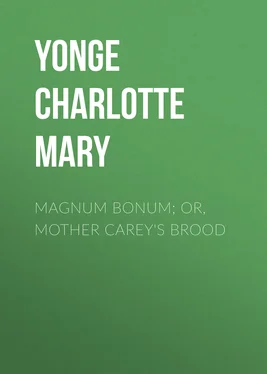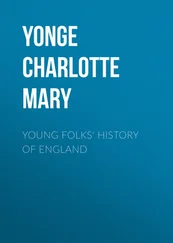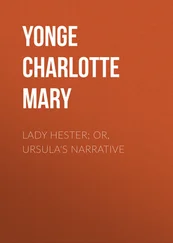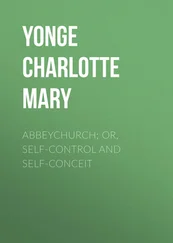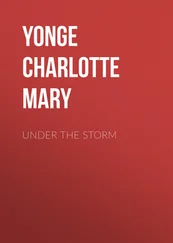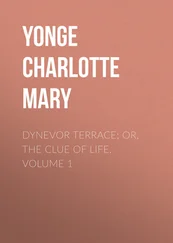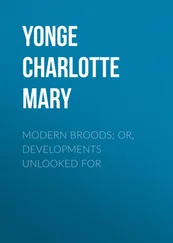Charlotte Yonge - Magnum Bonum; Or, Mother Carey's Brood
Здесь есть возможность читать онлайн «Charlotte Yonge - Magnum Bonum; Or, Mother Carey's Brood» — ознакомительный отрывок электронной книги совершенно бесплатно, а после прочтения отрывка купить полную версию. В некоторых случаях можно слушать аудио, скачать через торрент в формате fb2 и присутствует краткое содержание. Издательство: Иностранный паблик, Жанр: foreign_prose, literature_19, Европейская старинная литература, foreign_antique, на английском языке. Описание произведения, (предисловие) а так же отзывы посетителей доступны на портале библиотеки ЛибКат.
- Название:Magnum Bonum; Or, Mother Carey's Brood
- Автор:
- Издательство:Иностранный паблик
- Жанр:
- Год:неизвестен
- ISBN:нет данных
- Рейтинг книги:5 / 5. Голосов: 1
-
Избранное:Добавить в избранное
- Отзывы:
-
Ваша оценка:
- 100
- 1
- 2
- 3
- 4
- 5
Magnum Bonum; Or, Mother Carey's Brood: краткое содержание, описание и аннотация
Предлагаем к чтению аннотацию, описание, краткое содержание или предисловие (зависит от того, что написал сам автор книги «Magnum Bonum; Or, Mother Carey's Brood»). Если вы не нашли необходимую информацию о книге — напишите в комментариях, мы постараемся отыскать её.
Magnum Bonum; Or, Mother Carey's Brood — читать онлайн ознакомительный отрывок
Ниже представлен текст книги, разбитый по страницам. Система сохранения места последней прочитанной страницы, позволяет с удобством читать онлайн бесплатно книгу «Magnum Bonum; Or, Mother Carey's Brood», без необходимости каждый раз заново искать на чём Вы остановились. Поставьте закладку, и сможете в любой момент перейти на страницу, на которой закончили чтение.
Интервал:
Закладка:
With a resigned sigh at the folly of mankind, his wife asked, “How about the others? That woman with the hair? and that man with the velvet coat? Jessie says Jock told her that he was a mere play-actor!”
“Jock told Jessie! Nonsense, my dear! The man is going out to China in the tea trade, and is come to take leave. I believe he did sing in public at one time; but Joe attended him in an illness which damaged his voice, and then he put him in the way of other work. You need not be afraid. Joe was one of the most particular men in the world in his own way.”
Mrs. Brownlow could do no more. She had found that her little sister-in-law could be saucy, and personal squabbles, as she justly thought, had better be avoided. She could only keep Jessie from the contamination by taking her out in the carriage and to garden parties, which the young lady infinitely preferred to long walks that tired her and spoilt her dress; to talk and laughter that she could not understand, and games that seemed to her stupid, though everybody else seemed to find them full of fun. True, Allen and Bobus were always ready to push and pull her through, and to snub Janet for quizzing her; but Jessie was pretty enough to have plenty of such homage at her command, and not specially to prefer that of her cousins, so that it cost her little to turn a deaf ear to all their invitations.
Her brothers were not of the same mind, for Rob was never happy out of sight of Jock. Johnny worshipped his aunt, and Joe was gregarious, so there was generally an accompanying rabble of six or seven boys, undistinguishable by outsiders, though very individual indeed in themselves and adding a considerable element of noise, high spirits, and mischievous enterprise. The man in the velvet coat, whose proper name was Orlando Hughes, was as much of a boy as any of them, and so could Mr. Acton be on occasion, thus giving a certain Bohemian air to their doings.
Things came to a crisis on one of the dog-days. Young Dr. Drake had brought his bride to show to his old friend, and they were staying at the Folly, while a college friend of Mr. Ogilvie’s, a London curate, had come to see him in the course of a cathedral tour, and had stayed on, under the attraction of the place, taking the duty for a few Sundays.
The weather was very sultry, forbidding exertion on the part of all save cricketers; but there was a match at Redford, and Kenminster was eager about it, so that all the boys, grown up or otherwise, walked over to see it, accompanied by Nita Ray with her inseparable Janet, meaning to study village groups and rustic sports. The other ladies walked in the cool to meet them at the Acton’s farmhouse, chiefly, it was alleged, in deference to the feelings of the bride, who could not brave the heat, but had never yet been so long separated from her bridegroom.
The little boys, however, were alone to be found at the farm, reporting that their elders had joined the cricket supper. So Mrs. Acton made them welcome, and spread her cloth in the greensward, whence could be seen the evening glow on the harvest fields. Then there was a feast of cherries, and delicious farmhouse bread and butter, and inexhaustible tea, which was renewed when the cricketers joined them, and called for their share.
Thus they did not set out on their homeward walk, over fragrant heath and dewy lanes, till just as the stars were coming out, and a magnificent red moon, scarcely past the full, was rising in the east, and the long rest, and fresh dewiness after the day’s heat, gave a delightful feeling of exhilaration.
Babie went skipping about in the silvery flood of light, quite wild with delight as they came out on the heath, and, darting up to Mr. Ogilvie, asked if now he did not think they might really see a fairy.
“Perhaps I do,” he said.
“Oh where, where, show me?”
“Ah! you’re the one that can’t see her.”
“What, not if I did my eyes with that Euphrasia and Verbena officinalis?” catching tight hold of his hand, as a bright red light went rapidly moving in a straight line in the valley beneath their feet.
“Robin Goodfellow,” said Mr. Hughes, overhearing her, and immediately began to sing—
“I know a bank”—
Then the curate, as he finished, began to sing some other appropriate song, and Nita Ray and others joined in. It was very pretty, very charming in the moonlight, very like “Midsummer Night’s Dream;” but Mary Ogilvie, who was a good way behind, felt a start of dismay as the clear notes pealed back to her. She longed to suggest a little expediency; but she was impeded; for poor Miss Ray, entirely unused to long country walks and nocturnal expeditions, and further tormented by tight boots, was panting up the hill far in the rear, half-frightened, and a good deal distressed, and could not, for very humanity’s sake, be left behind.
“And after all,” thought Mary, as peals of the boys’ merry laughter came to her, and then again echoes of “spotted snakes with double tongue” awoke the night echoes; “this is such a solitary place that it cannot signify, if they will only have the sense to stop when we get into the roads.”
But they hadn’t. Mary heard a chorus from “Der Freischutz,” beginning just as she was dragging her companion over a stile, which had been formidable enough by day, but was ten times worse in the confusing shadows. That brought them into a lane darkened by its high hedges, where there was nothing for it but to let Miss Ray tightly grapple her arm, while the songs came further and further on the wind, and Mary felt the conviction that middle-aged spinsters must reckon on being forgotten, and left behind alike by brothers, sisters, and friends.
Nor did they come up with the party till they found them waiting in the road, close to the Rays’ lodgings, having evidently just missed them, for Mr. Ogilvie and the clergyman were turning back to look for them when they were gladly hailed, half apologised to, half laughed at by a babel of voices, among which Nita’s was the loudest, informing her sister that she had lost the best bit of all, for just at the turn of the lane there had come on them Babie’s fiery-eyed monster, which had “burst on the path,” when they were in mid song, flashing over them, and revealing, first a horse, and then a brougham, wherein there sat the august forms of Colonel and Mrs. Brownlow, going home from a state dinner, the lady’s very marabouts quivering with horror.
Mary stepped up to Nita, and gave her a sharp, severe grasp.
“Hush! remember their boys are here,” she whispered; and, with an exaggerated gesture, Nita looked about her in affected alarm, and, seeing that none were near, added—
“Thank you; I was just going to say it would be a study for Punch”
“O do send it up, they’ll never know it,” cried Janet; but there Caroline interfered—
“Hush, Janet, we ought to be at home. Don’t stand here, Armine is tired to death! 11.5 at the station to-morrow. Good-night.”
They parted, and Mary and her brother turned away to their own home. If it had not been for the presence of the curate, Mary would have said a good deal on the way home. As it was, she was so silent as to inspire her brother with enough compunction for having deserted her, to make him follow her, when she went to her own room. “Mary, I am sorry we missed you,” he said; “I ought to have looked about for you more, but I thought—”
“Nonsense, David; of course I do not mind that, if only I could have stopped all that singing.”
“That singing; why it was very pretty, wasn’t it?”
“Pretty indeed! Did it never occur to you what a scrape you may be getting that poor little thing into with her relations, and yourself, too?”
David looked more than half-amused, and she proceeded more resolutely—
Читать дальшеИнтервал:
Закладка:
Похожие книги на «Magnum Bonum; Or, Mother Carey's Brood»
Представляем Вашему вниманию похожие книги на «Magnum Bonum; Or, Mother Carey's Brood» списком для выбора. Мы отобрали схожую по названию и смыслу литературу в надежде предоставить читателям больше вариантов отыскать новые, интересные, ещё непрочитанные произведения.
Обсуждение, отзывы о книге «Magnum Bonum; Or, Mother Carey's Brood» и просто собственные мнения читателей. Оставьте ваши комментарии, напишите, что Вы думаете о произведении, его смысле или главных героях. Укажите что конкретно понравилось, а что нет, и почему Вы так считаете.
